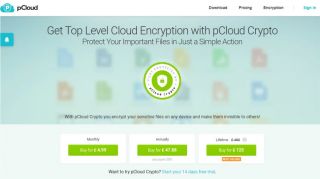There are a lot of ways to share files online, but not so many ways to do so securely.
While many existing software platforms might offer additional features such as document password protection, it won't apply to every file or folder you may want to send. What's required is some form of end-to-end encryption to ensure any files shared remain private.
This can be obviously important for businesses, it hasn't ordinarily been seen as something important to ordinary home users - but the increasingly common hack attacks revealing personal and confidential data from even big brand companies mean that many people are now actively looking to protect their online information.
There are a number of methods available you could use directly, such as PGP and GPG which use public key cryptography, as well as SSH and SFTP, these are technical approaches most home users won't be familiar will and may struggle to implement themselves.
Therefore we'll look at existing popular apps and software that uses encryption by default, so that any information - and files - you send using these will stay protected and secured.
Here then are the best apps for sharing files securely:

(Image credit: pCloud)
1. pCloud Crypto
The best way to secure cloud storage
Cloud storage
Encryption applied
Reasonable prices
There doesn’t appear to be any limit to the size of files you can upload to pCloud, so that makes it ideal not just for syncing files, but syncing large ones – and sharing them with whoever you want.
You can opt to pay for just cloud storage services, which cost just under $5 per month for 500GB, if paid annually. However, the company also offers a one-time lifetime charge of around $200, which could prove very cost-effective in the long-term.
The encrypted option is an additional feature, and costs another $5 per month, providing client-side encryption to password protect files as they speed across the net.
Another strength here is the wide range of supported devices, including Windows, macOS, Linux, iOS and Android hardware, plus there’s a web platform to boot.

(Image credit: Enigmail)
2. Enigmail
The best way to secure emails
Plugin for Thunderbird
Encryption as standard
Requires Thunderbird
Mozilla may be famous for developing the Firefox broswer, but what many people overlook is that the company also provides the Thunderbird email client as a free alternative to Outlook to install on your PC.
It's both open source, and can be be installed on Windows, Apple, FreeBSD, and Linux machines.
That in itself would be good news, but it gets even better with the array of plugins available for it - and this includes the Enigmail plugin, which uses OpenPGP to encrypt and digitally sign emails that you send and receive.
The clear advantage here is that it means you don't have to learn your way around encryption protocols to create your own secure solution.
However, the obvious disadvantage is that you need to use Mozilla Thundrebird as an email client to gain the benefit of Enigmail.

(Image credit: Signal)
3. Signal
The best way to secure messages
Open source
Industry-leading encryption
Sparse interface
Besides the industry-leading encryption on offer here, the app itself is fairly plain and basic in terms of visuals and appearance. It does support group chats though, as well as the sending of files and photos in addition to text, so you're going to be pretty well covered no matter what your needs.
Signal can replace the default SMS app if you want it to, but basic SMS texts aren't encrypted – you and the person you're chatting with both need to have Signal installed for the encryption feature to function properly, otherwise Signal doesn't have enough control over both ends of the conversation.
The app also includes several other useful features on top of the tight security, such as video calling, and disappearing messages that vanish after a certain time period (perfect for those conversations you don't want to stay on the record).

(Image credit: LastPass)
4. LastPass
The best password manager
Keep passwords secret
Keep passwords hidden
Requires shared devices
Part of the beauty of LastPass is that if you choose you can allow your correspondent to log in and access files without them seeing the password. Your connection is also protected by SSL so there’s very little chance anyone could connect to your data in the same way. In short, this is one of the most respected password managers out there, and with good reason.

(Image credit: Resilio)
5. Resilio Connect
The best file syncing solution
Peer-2-peer syncing
High performance
Not open source
Provided both your device and your correspondent’s are online, files can be shared in real-time and the connection is secured by 128-bit AES. BitTorrent is particularly good for sharing large files and folders as it was originally designed for that purpose. More devices can be added to share files with others if you wish.
The app is available for Windows, macOS, Linux, Android and iOS. The client is not open source so there’s no easy way for security experts to check the code used for any vulnerabilities.








Gloss